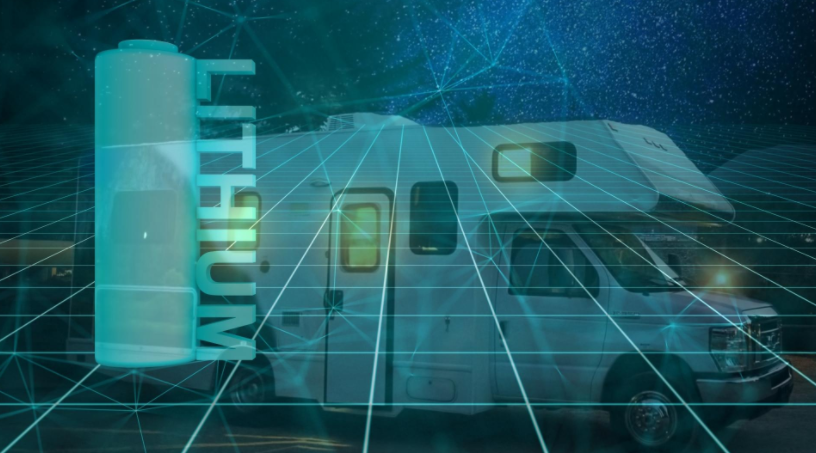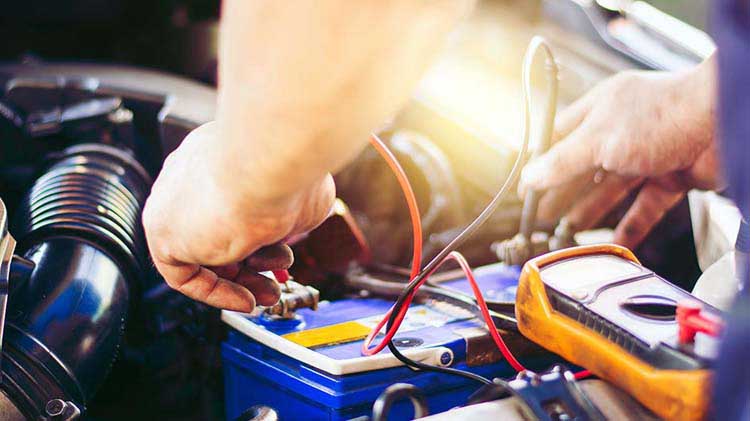Литий-железо-фосфатные аккумуляторные элементы (LiFePO4)
Lithium iron phosphate (LiFePO4) battery cells have become increasingly popular in recent years due to their high energy density, long cycle life, and safety features. These batteries are commonly used in a variety of applications, including electric vehicles, renewable energy storage, and portable electronics.
LiFePO4 batteries are made up of several components, including a cathode, an anode, a separator, and an electrolyte. The cathode is made up of a lithium iron phosphate material, which is highly stable and resistant to thermal runaway. The anode is typically made up of graphite or a similar material. The separator is a thin, porous membrane that allows the lithium ions to move back and forth between the cathode and anode. The electrolyte is a liquid or gel-like substance that contains lithium salts and facilitates the movement of ions.
One of the main advantages of LiFePO4 batteries is their high energy density. This means that they can store a large amount of energy in a relatively small amount of space. This makes them ideal for use in electric vehicles, where a compact and lightweight battery pack is essential for maximizing range and efficiency.
Another key advantage of LiFePO4 batteries is their long cycle life. Unlike other types of lithium-ion batteries, which can degrade quickly over time, LiFePO4 batteries can withstand thousands of charge and discharge cycles without significant loss of capacity. This makes them ideal for use in renewable energy storage applications, where the battery may need to be charged and discharged on a daily basis.
In addition to their high energy density and long cycle life, LiFePO4 batteries are also known for their safety features. Unlike other types of lithium-ion batteries, which can be prone to thermal runaway and other dangerous events, LiFePO4 batteries are highly stable and unlikely to catch fire or explode. This makes them a popular choice for use in portable electronics, where safety is a top priority.

Despite their many advantages, LiFePO4 batteries do have some limitations. For example, they are typically more expensive than other types of lithium-ion batteries, which can make them less attractive for certain applications. Additionally, LiFePO4 batteries tend to have lower power density than other lithium-ion batteries, which can limit their use in high-performance applications.
Overall, however, Lithium iron phosphate (LiFePO4) battery cells are a highly promising technology that is likely to play an increasingly important role in the future of energy storage and transportation. With their high energy density, long cycle life, and safety features, they offer a compelling option for a wide range of applications, from electric vehicles to renewable energy storage to portable electronics.
-
 Agriculture plays a crucial role in global food production, and advancements in technology have significantly transformed the industry. One such innovation is the use of high-power lithium batteries for agricultural tools. These batteries have revolutionized the efficiency and productivity of farming practices, offering numerous benefits to farmers. In this article, we will explore the advantages of high-power lithium batteries in...Читать далее
Agriculture plays a crucial role in global food production, and advancements in technology have significantly transformed the industry. One such innovation is the use of high-power lithium batteries for agricultural tools. These batteries have revolutionized the efficiency and productivity of farming practices, offering numerous benefits to farmers. In this article, we will explore the advantages of high-power lithium batteries in...Читать далее -
 В мире возобновляемой энергетики всегда продолжается поиск надежных и долговечных источников энергии. Одним из таких источников питания, который в последние годы набирает популярность, является аккумулятор LiFePO4 емкостью 100 Ач, напряжением 12 В. Этот тип аккумуляторов считается прорывом в аккумуляторной технологии из-за его преимуществ перед традиционными свинцово-кислотными аккумуляторами. 100Ач 12В...Читать далее
В мире возобновляемой энергетики всегда продолжается поиск надежных и долговечных источников энергии. Одним из таких источников питания, который в последние годы набирает популярность, является аккумулятор LiFePO4 емкостью 100 Ач, напряжением 12 В. Этот тип аккумуляторов считается прорывом в аккумуляторной технологии из-за его преимуществ перед традиционными свинцово-кислотными аккумуляторами. 100Ач 12В...Читать далее -
 Введение: В современном быстро меняющемся и технологичном мире надежные и эффективные решения в области электропитания необходимы для широкого спектра приложений. Будь то питание электромобилей, систем хранения возобновляемой энергии или систем аварийного резервного копирования, решающее значение имеет аккумулятор высокой емкости и долговечности. Литиевая батарея LiFePO4 12 В, 200 Ач — это современное решение для электропитания, обеспечивающее исключительную производительность и надежность. Этот...Читать далее
Введение: В современном быстро меняющемся и технологичном мире надежные и эффективные решения в области электропитания необходимы для широкого спектра приложений. Будь то питание электромобилей, систем хранения возобновляемой энергии или систем аварийного резервного копирования, решающее значение имеет аккумулятор высокой емкости и долговечности. Литиевая батарея LiFePO4 12 В, 200 Ач — это современное решение для электропитания, обеспечивающее исключительную производительность и надежность. Этот...Читать далее -
 When it comes to powering our electronic devices, vehicles, and homes, the type of battery we use plays a crucial role in ensuring that we have reliable and long-lasting energy. With the advancements in technology, new types of batteries have emerged, giving us more options to choose from. One such battery is the high-capacity 12V 100Ah Lithium Iron Phosphate (LiFePO4)...Читать далее
When it comes to powering our electronic devices, vehicles, and homes, the type of battery we use plays a crucial role in ensuring that we have reliable and long-lasting energy. With the advancements in technology, new types of batteries have emerged, giving us more options to choose from. One such battery is the high-capacity 12V 100Ah Lithium Iron Phosphate (LiFePO4)...Читать далее -
 Спрос на эффективные и надежные решения в области электропитания никогда не был таким большим. Поскольку традиционные свинцово-кислотные аккумуляторы с трудом справляются с растущими потребностями современных приложений в электроэнергии, появилась революционная альтернатива — литиевая батарея LiFePO4 12 В, 100 Ач. Это передовое решение в области электропитания преобразует отрасли и предлагает пользователям беспрецедентные преимущества. Одно из самых существенных преимуществ...Читать далее
Спрос на эффективные и надежные решения в области электропитания никогда не был таким большим. Поскольку традиционные свинцово-кислотные аккумуляторы с трудом справляются с растущими потребностями современных приложений в электроэнергии, появилась революционная альтернатива — литиевая батарея LiFePO4 12 В, 100 Ач. Это передовое решение в области электропитания преобразует отрасли и предлагает пользователям беспрецедентные преимущества. Одно из самых существенных преимуществ...Читать далее -
 Introduction: Golf carts have become an increasingly popular mode of transportation not just on golf courses, but also in communities, resorts, and even commercial areas. These low-speed vehicles offer a convenient and eco-friendly alternative to traditional cars. However, to ensure a smooth and reliable ride, it is crucial to have a high-quality golf cart battery. In this article, we will...Читать далее
Introduction: Golf carts have become an increasingly popular mode of transportation not just on golf courses, but also in communities, resorts, and even commercial areas. These low-speed vehicles offer a convenient and eco-friendly alternative to traditional cars. However, to ensure a smooth and reliable ride, it is crucial to have a high-quality golf cart battery. In this article, we will...Читать далее -
 Введение В последние годы спрос на системы мониторинга безопасности резко возрос из-за растущей озабоченности по поводу безопасности и наблюдения. Традиционные системы мониторинга безопасности в значительной степени полагались на проводные соединения, что делало их уязвимыми к перебоям в подаче электроэнергии и повреждению инфраструктуры. Однако благодаря достижениям в области технологии литиевых батарей системы мониторинга безопасности теперь могут быть усовершенствованы, чтобы обеспечить бесперебойное...Читать далее
Введение В последние годы спрос на системы мониторинга безопасности резко возрос из-за растущей озабоченности по поводу безопасности и наблюдения. Традиционные системы мониторинга безопасности в значительной степени полагались на проводные соединения, что делало их уязвимыми к перебоям в подаче электроэнергии и повреждению инфраструктуры. Однако благодаря достижениям в области технологии литиевых батарей системы мониторинга безопасности теперь могут быть усовершенствованы, чтобы обеспечить бесперебойное...Читать далее

